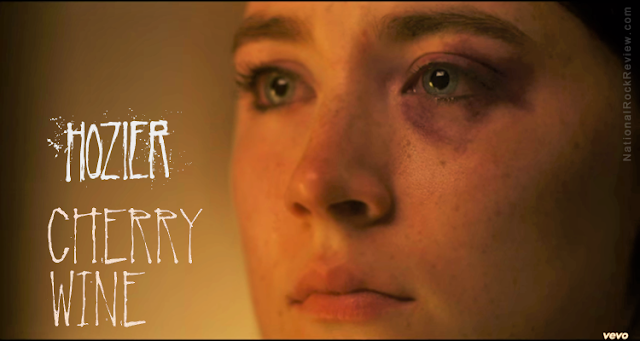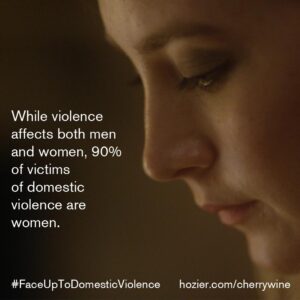In my listening posts, I am focusing on Hozier’s “Cherry Wine”. Originally recorded in 2014 for his debut album, the song was re-released with a music video on February 12, 2016, as a charity single that donated proceeds to domestic abuse charities worldwide. Hozier released the song to raise awareness and insight into abusive relationships, showing from the perspective of an abuse victim. In 2016, growing activism around feminism and the “Me Too” Movement brought domestic abuse to new light, inspiring Hozier to release the song with a music video starring Saoirse Ronan depicting an abusive relationship’s cycle of abuse.
“The way she tells me I’m hers and she is mine/Open hand or closed fist would be fine/The blood is rare and sweet as cherry wine.”
While no single event triggered his inspiration to write the song, Hozier stated that the continued issue of domestic abuse in modern societies is an outrageously large problem for countless relationships, families, and generations. In his initial statement for the release of the song, Hozier offers that the song gives an intimate insight into an abusive relationship, showing the cycle of justification that often runs in domestic abuse relationships that control the victim and shames them into submission, while the abuser has the responsibility of their violent behavior shifted away from them and excused.
With this in mind, the genre of the song plays into context to the song, being an indie-folk song that uses the audience’s scheme of interpretation to its advantage in its genre stereotypes. Using simple strumming of an acoustic guitar, Hozier’s deep and warm voice, and the background of birds chirping, the song is tender and gentle to the ears and mind upon surface listening. However, Hozier uses this to his advantage, making his lyrics poetically dark in the subject and only understood through deeper listening and reflection.
“Hot and fast and angry as she can be / I walk my days on a wire / It looks ugly / But it’s clean / Oh mama, don’t fuss over me”
Listeners are lulled into the sense of security and gentleness that indie and folk music usually offers, and just domestic abuse, are shaken by the dark hidden undertones that his lyrics deliver.
Just like the circle of abuse and justification that victims of abusive relationships experience, Hozier leads his audiences through the same senses and false-safety that is offered within the composition. His harsh and dark lyrics that attack listeners are immediately lulled into a calming, subduing state through the acoustic guitar, his voice, and its recording, which features the sounds of birds chirping. With this, the true meaning, just like the abuse, is sugar-coated amongst the audience assumptions of the music and genre Hozier caters to. Overall, Hozier’s genius within this song lies within his understanding of musical codes and composition that deliver the harsh lyrics to a subdued audience, achieving the same mental and emotional divide abusive relationships have on victims.


March 2, 2021 at 1:36 pm
Emma,
This is a very good post, but I’m still rather interested in how you understand the lyrics versus in relation to the video, woman and male abusers, and how that plays into an interpretation of the song — as well as the song’s range and importance. And how (ir if) the video changes the meaning in the song at all.
When preparing for your podcast, I encourage you to start looking up (if you haven’t already) the stats on domestic abuse. I’m also curious if releasing the song resulted in an increase in calls to domestic abuse hotlines.
Looking forward to your further posts!
Bill